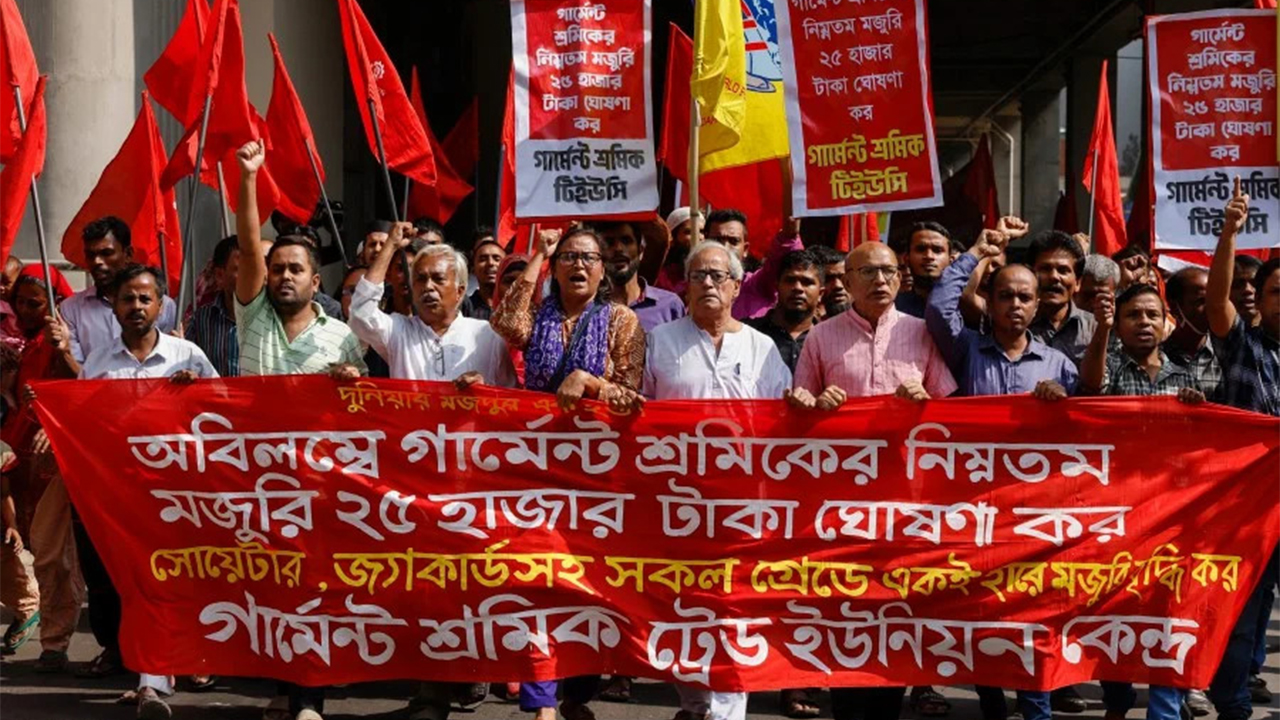Bangladesh’s garment industry, a crucial economic pillar, faces the risk of severe damage due to an ongoing wage dispute that has sparked protests and heightened political turmoil in the country.
Following extensive protests and clashes, the government recently mandated a 56% increase in the monthly minimum wage for garment workers, setting it at 12,500 taka or approximately $113. However, workers have deemed this raise insufficient to cope with soaring food prices and record inflation. Despite the government’s decision, almost all unions, representing a collective 4 million workers, have rejected the hike, leading to continued boycotts of shifts and road blockades in key industrial areas near Dhaka, such as Gazipur and Ashulia.
These protests, considered the most significant wage-related unrest in a decade, coincide with nationwide blockades by the main political opposition, the Bangladesh Nationalist Party (BNP). The BNP is calling for the immediate resignation of Prime Minister Sheikh Hasina to facilitate a neutral caretaker government for the upcoming January elections. Hasina, however, has not only rejected this demand but has also linked the garment worker strikes to the BNP, issuing stern warnings of consequences.
Prime Minister Hasina stated, “Garment workers should be aware that they would have to return to their villages and live in unemployment if they cause damage to factories.” She accused the BNP of instigating the protests and acts of vandalism.
The ready-made garment industry is a crucial source of income for Bangladesh, constituting around 80% of the country’s annual exports ($55 billion) and 16% of its GDP. Given concerns about dwindling foreign exchange reserves, disruptions in this industry could have severe economic consequences.
The wage dispute, combined with political protests and arrests of opposition figures, is casting a shadow over the country’s economic future and the state of Bangladeshi democracy.








